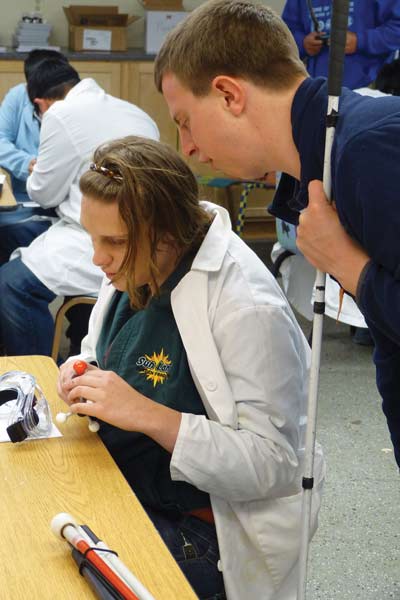
By Edward Bray, National Director of Government Relations and State Initiatives
This blog represents Learning Ally’s perspective on preserving the reauthorization of the Higher Education Act – the law that oversees federal financial aid education programs.
In February 2018, we wrote to the United State Senate Committee on Health, Education, Labor & Pensions, specifically to Chairman Lamar Alexander and Ranking Member Patty Murray on behalf of individuals with print disabilities to attend and succeed in higher education. While plenty of details have yet to emerge, evidence now suggests that the Committee has an ambitious plan to change how the federal government targets and distributes student aid money and discussions to deregulate and tighten oversight of all aspects of the financial aid program.
Learning Ally urges the Committee to include three specific provisions in its reauthorization:
I. We recommend reauthorizing the Demonstration Projects to Support Postsecondary Faculty, Staff, and Administrators in Educating Students with Disabilities under Title VII, Part D.
 In addition to retaining this provision, Learning Ally urges the Committee to expand the authorization to include demonstration projects that deliver direct services and support to students with disabilities, including print disabilities, to support their successful transition to postsecondary education, increase their persistence, and support their completion of postsecondary degrees and credentials.
In addition to retaining this provision, Learning Ally urges the Committee to expand the authorization to include demonstration projects that deliver direct services and support to students with disabilities, including print disabilities, to support their successful transition to postsecondary education, increase their persistence, and support their completion of postsecondary degrees and credentials.
Research conducted by Learning Ally with the support of the Lavelle Fund for the Blind found that students with visual impairments and blindness face a unique set of barriers to successful transition to college that linger throughout their postsecondary education, if not addressed.
These challenges lead to student frustration and consequently higher rates of students failing to complete degree and credential programs. An expanded authorization that supports demonstration projects, wherein effective strategies can be piloted and refined, will help students with visual impairments and other disabilities succeed in postsecondary education.
II. Learning Ally urges the Committee to reauthorize the Program for Improved Access to Materials.
Rapid, effective access to the wide array of postsecondary instructional materials, both core and research resources, is vital for students to achieve. Effective access to instructional materials is a critical barrier to academic success for students with print disabilities. While digital materials proliferate on college campuses and other venues of postsecondary education, digital does not equate to accessible. To date, a commercial solution has not arisen, and as such, the Higher Education Act program can serve as the incubator for developing a viable solution.
III. In addition to the competitive grants authorized under the current Higher Education Act, Learning Ally urges the following …
Creation of a new authorized project to muster the resources of a consortium of nonprofits and public entities to begin converting the digital, but not accessible, collection of millions of academic titles held by the Hathi Trust into accessible versions for individuals with print disabilities.
In its final decision, the 2nd Circuit Court of Appeals declared it would be a fair use exception to convert the collection to an accessible version for individuals with print disabilities.
Given the scope of the project, no single entity seems able to accomplish this.
Learning Ally urges the Committee to include the appropriate authorizations to permit the support of this worthwhile project. Students with print disabilities should have the equal access to these materials, as envisioned with the first passage of An Act to Provide Books to The Adult Blind in 1931. Through this reauthorization, Congress can take a needed and great step forward to ensuring all students have equal access to the knowledge collected in the Hathi Trust database.
Historic Perspective on Learning Ally
Learning Ally was founded as Recording for the Blind with a mission to support veterans of World War II who had lost their sight due to injuries and for them to take advantage of the G.I. Bill and attend college.
In the decades that followed, Learning Ally’s mission has expanded to serve K-12 and college students who are blind and dyslexic, and all individuals with print disabilities.